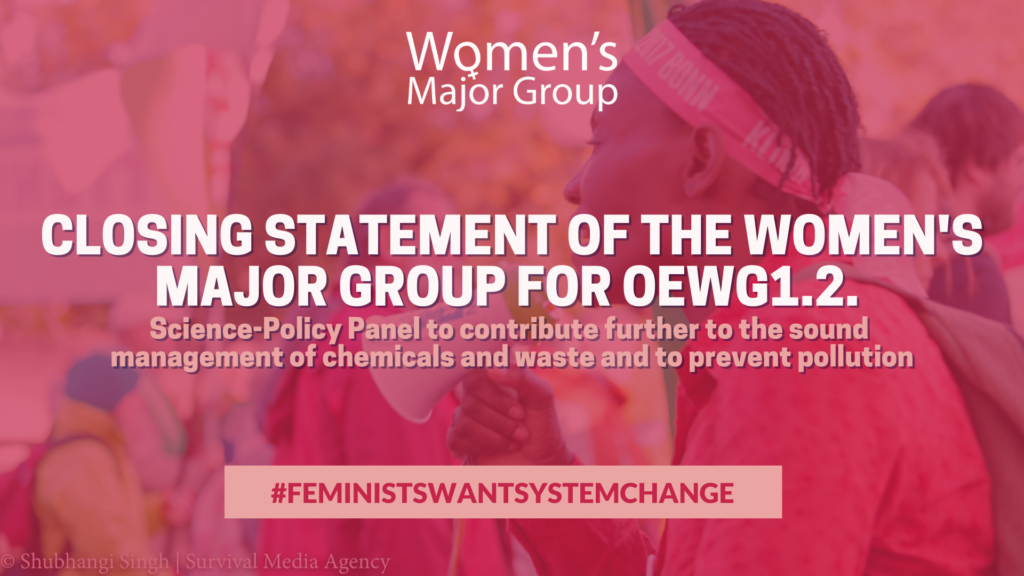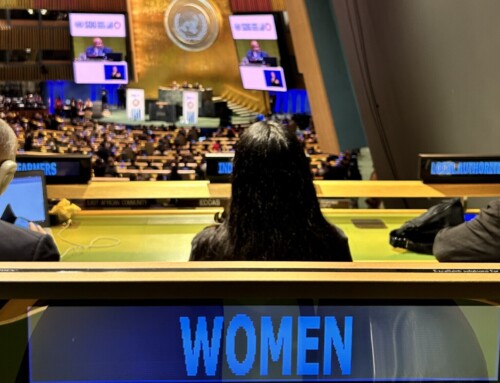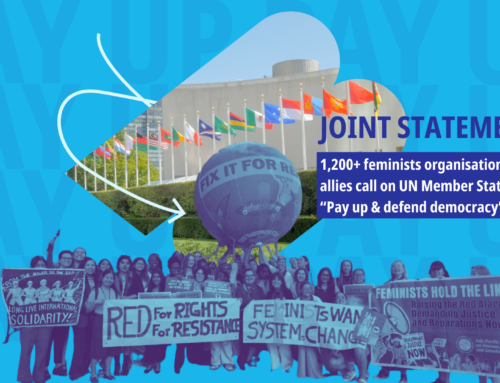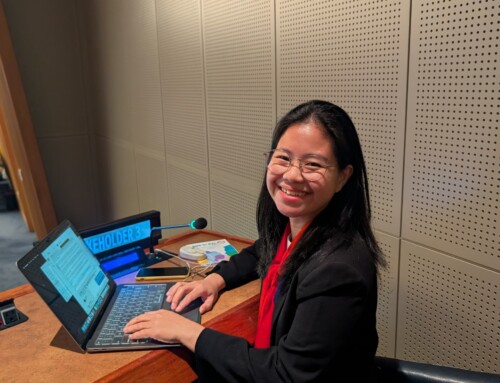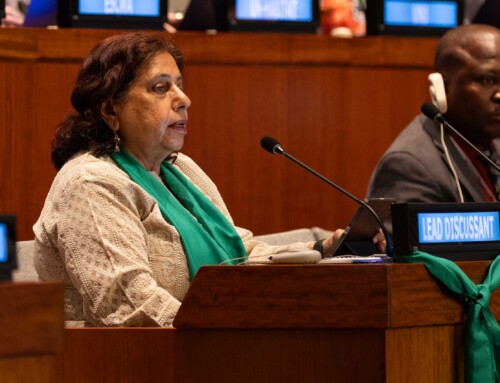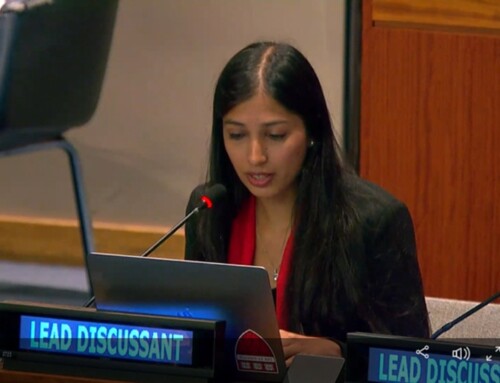Women’s Major Group Closing Statement – OEWG1.2. : Science-Policy Panel to contribute further to the sound management of chemicals and waste and to prevent pollution. Statement delivered on 3 February, 2023 by Anna Holthaus, Project Coordinator “Gender and Chemicals – for a gender-responsive chemicals management.”
Thank you Chair,
I am Anna Holthaus, speaking on behalf of the Women’s Major Group.
In 1962, Rachel Carson published her book Silent Spring. Her feminist ground-breaking work is widely acknowledged as a catalyst of the precautionary approach and environmental impact assessments.
But now, more than 60 years later, the production of chemicals is still increasing and shockingly we are still far away from comprehensively understanding the effects of chemicals on women’s bodies. What we do know is that chemicals that are used today, have a ripple effect across generations. Studies have found harmful chemicals in breast milk, microplastics in the placenta, and that male reproductive health is rapidly declining.
We need a better understanding of the impacts of chemicals, waste and pollution on half the world’s population! In addition, we must reflect on the important role of women in families, communities and to the extended societies to find better solutions to leave no one behind. Women are mostly the primary and secondary contacts with all toxic exposure for themselves, their children and even in protecting their male family members and their natural environment.
So far, women’s roles and gender differences have hardly been analyzed, documented and understood in science due to the still-existing gender inequalities in the science sector and the lack of gender-disaggregated data.
A paradigm shift is needed! Then political action must quickly follow, as early scientific warnings can prevent lifelong impacts on our health. That is why we are pleased that many Member States have highlighted the need for a gender-responsive Science-Policy Panel this week, and we look forward to working with you to make it happen.
Therefore, the intersessional work of SPP should include learning from past chemical disasters and scanning the knowledge gaps. The establishment of a gender policy and implementation plan is a good start and the inclusive language in IPBES operating principles and the existing IPCCs gender policy can serve as inspiration. Nevertheless, a human rights-based approach, the full and equal recognition of women’s expertise and feminist perspectives and intersessional work free of conflict of interest must be a pre-condition for this.
Thank you!

